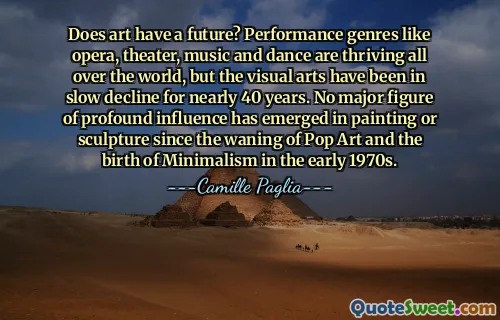Camille Paglia is a prominent cultural critic and author known for her provocative views on art, culture, and feminism. She gained fame with her book "Sexual Personae," which explores the interplay between sex and culture throughout Western history. Paglia's work often challenges traditional feminist perspectives, as she emphasizes the importance of biological and cultural influences on gender. She advocates for a more nuanced understanding of sexuality and gender roles. In addition to her writing, Paglia is a public intellectual who engages in debates across various platforms, making her a controversial figure in contemporary discourse. Her perspectives often critique the modern feminist movement and emphasize the necessity of acknowledging historical context in discussions about gender and sexuality. She is known for her sharp wit and unapologetic stance, which has garnered both support and criticism. Paglia's contributions extend beyond academia; she has been an influential voice in popular culture, appearing in media outlets and giving lectures worldwide. Through her work, she has inspired many to reconsider preconceived notions about gender and art, advocating for a deeper exploration of the complexities involved. Her impact on cultural criticism continues to resonate, prompting discussions about the intersections of sex, politics, and identity.
Camille Paglia is a renowned cultural critic, author, and academic, recognized for her distinctive perspectives on feminism, art, and sexuality. Her work often challenges conventional views on gender and emphasizes a historical understanding of these concepts.
She rose to prominence with her influential book "Sexual Personae," which examines the relationship between sex and culture, articulating a perspective that blends cultural analysis with personal experience. Paglia’s arguments advocate for recognizing biological influences in discussions about gender.
As a public intellectual, Paglia engages in vibrant debates and remains a controversial figure in contemporary discussions about feminism. Her contributions to cultural criticism have left an enduring mark, inspiring many to rethink their assumptions about gender, identity, and the complexities of human sexuality.
More »
Today Birthdays
1955 -
Max Lucado
1946 -
John Piper
1842 -
William James
1907 -
Abraham Joshua Heschel
1887 -
Aldo Leopold
1755 -
Alexander Hamilton
1976 -
Alethea Kontis
1971 -
Mary J. Blige
1825 -
Bayard Taylor
1943 -
Jim Hightower
1885 -
Alice Paul
1923 -
Carroll Shelby
1928 -
David L. Wolper
1954 -
Kailash Satyarthi
1972 -
Amanda Peet
1946 -
Naomi Judd
1970 -
Malcolm D. Lee
1955 -
Christian Marclay
1973 -
Rahul Dravid
1987 -
Jamie Vardy
1942 -
Clarence Clemons
1992 -
Fatima Sana Shaikh
1948 -
Larry Harvey
1930 -
Rod Taylor

